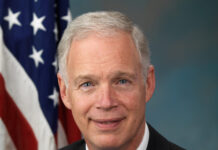Dealing with a devastated economy and the worst unemployment crisis in history, the U.S. government is quietly spending $23 million on “culturally and linguistically diverse” COVID-19 outreach and education in racial and ethnic minority and disadvantaged communities. The goal is to develop a national and statewide network of public and community-based organizations that will help mitigate the virus’s disproportionate impact among that demographic, according to one of the recently published grant announcements. A separate allocation will revive an Obama-era program that gave leftist groups tens of millions of dollars to help poor, minority and indigenous communities attain “environmental justice.” Under that project the Environmental Protection Agency (EPA) will reopen the State Environmental Justice Cooperative Agreement Program (SEJCA) to help “underserved communities” and “vulnerable populations” deal with COVID-19.
The biggest chunk of money, $22 million, will come from the Department of Health and Human Services (HHS), which just launched a National Infrastructure for Mitigating the Impact of COVID-19 within Racial and Ethnic Minority Communities. The agency’s Office of Minority Health (OMH) will dole out the cash to “community-based organizations” that are considered “trusted and usual information sources for racial and ethnic minority, rural and disadvantaged communities.” The organizations, most likely leftist groups, will use the taxpayer dollars to “disseminate effective response, recovery and resilience strategies and ensure service linkages for racial and ethnic minority, rural and disadvantaged communities hardest hit by the COVID-19 pandemic.” This includes identifying areas with minority and disadvantaged people at substantially greater risk of contracting the virus and adverse outcomes due to prevalence of underlying health conditions such as hypertension, heart disease, diabetes, obesity, asthma, and COPD/lung disease as well as structural and systemic barriers to physical distancing and challenges to accessing healthcare and social services. The money will flow for up to three years so the community groups can document and distribute “lessons learned” and other findings.
Here is why HHS, whose mission is to enhance and protect the health and well-being of all Americans, is dedicating tens of millions of dollars to this new venture: “Emerging data suggests racial and ethnic minority populations are experiencing disproportionate impact and worse health outcomes from COVID-19,” according to the grant document. “Past public health crises, like the H1N1 pandemic and Zika epidemic, have demonstrated and amplified the vulnerability of these populations. Specifically, when combined with a greater baseline prevalence of underlying health conditions, a public health crisis like COVID-19 further exacerbates the higher morbidity and mortality for racial and ethnic minority communities. Due to lack of resources and limited capacity to provide healthcare and social services, rural communities are also vulnerable to adverse COVID-19 outcomes in the immediate and long term.”
The EPA will dedicate $1 million to the coronavirus minority cause by bringing back Obama’s wasteful environmental justice initiative that filled the coffers of numerous leftist groups, including those that help illegal immigrants. Under the new project, nonprofits will work with underserved communities to understand, promote and integrate approaches to provide meaningful and measurable improvements to public health. The agency identifies underserved community as those with “environmental justice concerns and/or vulnerable populations, including minority, low income, rural, tribal, indigenous, and homeless populations.” In a document attached to the grant announcement, the EPA goes into tremendous detail about its new initiative to address the impacts of the COVID-19 pandemic on urban and rural low-income and minority communities.
Examples of eligible projects related to COVID-19 include the development of outreach programs to educate underserved and vulnerable populations about EPA-approved disinfectants and how to properly use them as well as managing trash removal within communities; “Healthy Homes” campaigns to share information about in-home environmental and health hazards that may increase vulnerability due to extended periods indoors resulting from local stay-at-home orders; other activities that educate, raise public knowledge and awareness toward achieving behavioral changes that improve health or prevent environmental pollution. To encourage participation the government will offer childcare, free disinfectants, translation services and material in “appropriate literacy levels for the impacted communities with environmental justice concerns.”
















